The Ruins of Lifta uncomfortably, and not always successfully, aims at an epicenter, where the Jewish view that the Holocaust prompted the triumphal establishment of the state of Israel crosses with the Palestinians’ tragic and angry view of the result: exile and oppression.
The geographic meeting point is at the western edge of Jerusalem, where Lifta is the sole Palestinian village vacated during the 1948 Arab-Israeli war that has not been destroyed or resettled by Jews. The first reason to see the documentary is the impressive views of its vacant, ancient stone houses resonate with significant symbolism.
Politically, the latest crisis to focus attention here is the Israel Land Authority’s plan for the town’s luxury redevelopment. Such fraught gentrification led to the unusual Palestinian and Jewish Coalition to Save Lifta suing to stop the proposal. The passionate and eloquent defense by the Palestinian members, former residents, is the other reason to see the film.
But narrator and on-screen guide Menachem Daum takes a detour to emphasize at length on the Holocaust, from his perspective as the American Orthodox Jewish son of survivors. He earlier collaborated with co-director Oren Rudavsky on Hiding and Seeking: Faith and Tolerance After the Holocaust. In that 2004 film, Daum traveled to his family’s hometown in Poland to reconcile complicated feelings with the younger generation. Somehow, he sees a community project to restore shattered graveyards of the now-absent Jewish population as a model for preserving Lifta and changing oppositional attitudes.
What’s more relevant, he starts rethinking his family’s idolization of his late uncle Mayer Yosef, who left Poland before the Holocaust. He joined what Israelis call the freedom-fighting Lehi, whom the British during their mandate administration labeled the Stern Gang because of terrorist attacks on civilian targets. The Palestinians remember the Lehi for violently pushing Arab residents out of their homes.
Mayer’s daughter and granddaughter agree that he never talked about his actions leading up to and during the 1948 war, or if he was in Lifta specifically, and Daum regrets that he didn’t ask as part of his early tries at documentary videos near the end of Yosef’s life.
Historians in the United States and Israel point out that Lifta was located above the crucial road into Jerusalem and, in an Intifada precursor, Arabs would shower rocks down on the Jewish residents. But the Palestinians claim those militants were poor transients who didn’t live in the (surviving) stone houses like those who had resided in the village for generations and who were on good terms with the local Jews—at least before the boatloads of homeless Holocaust refugees increased the Jewish population. (Co-director Rudavsky covered these issues in last year’s academic Colliding Dreams, which detailed the changing history of Zionist and Arab attitudes about their shared geography.)
Building on this link to the Holocaust, Daum extensively interviews Holocaust survivor (and sort of surrogate mother) Dasha Rittenberg in New York about her feelings towards her persecutors. Evidently to get her blessing on his effort to heal wounds that are oddly equated, he schleps the frail old lady around the Lifta ruins to see the Palestinian perspective. (The recent Germans & Jews made more sense for looking back in order to look forward.) More germane, Daum quizzes young Israelis about what they know of the impact of the 1948 war on Lifta and other villages. Sadly, they know little, and would benefit from learning more.
But it is the charismatic and passionate Palestinian member of the Coalition to Save Lifta, Yacoub Odeh, who frankly cuts through historical comparisons with his childhood memories of his home and his heartbroken father. He is even more eloquent and forceful than the elderly aunt of noted actor Mohammad Bakri in Zahara (2009), which had more archival footage of forced evacuations, as did Eliav Lilti’s compilation Israel: A Home Movie (2012).
Odeh confronts Daum over how his outsider proposal to preserve the village for some kind of center for reconciliation is insulting, let alone the idea of having strangers fix up graves. Surprisingly, Odeh never holds up that standard symbol of Palestinian refugees, “the key,” which prominently figures in such fictional films as Palestinian director Annemarie Jacir’s Salt of This Sea (2008) and Israeli director Eran Riklis’s Zaytoun (2012). Maybe it’s because Odeh can clearly see his family’s house and wants to move back in. In the film, the court case proceeds.
Though sometimes infuriatingly naïve and myopic, The Ruins of Lifta finally succeeds by opening up some space for honest dialogue.


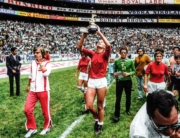
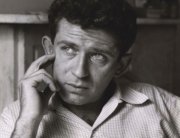
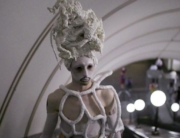
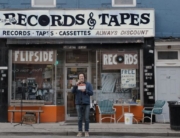
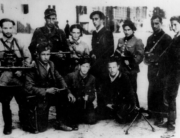
Leave A Comment